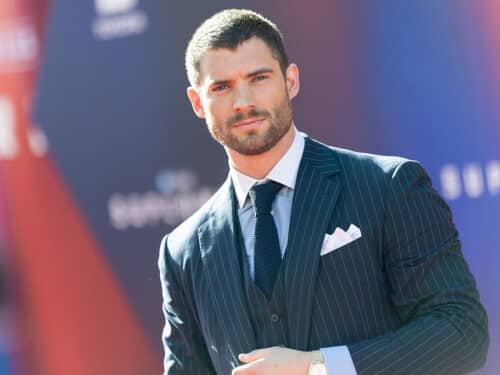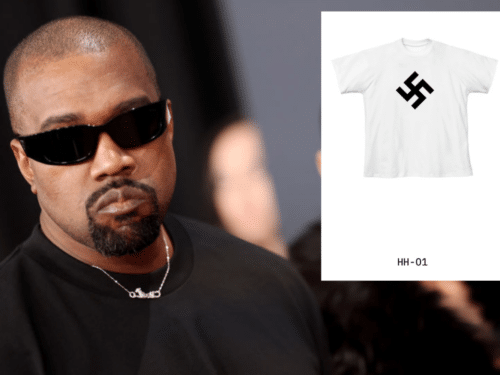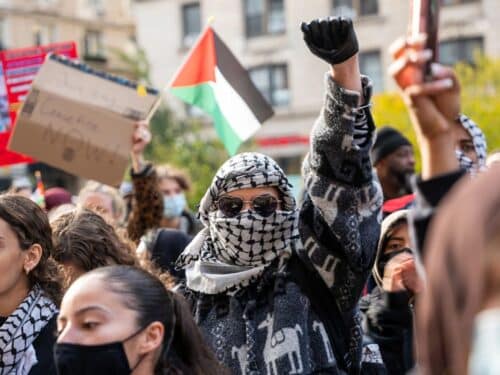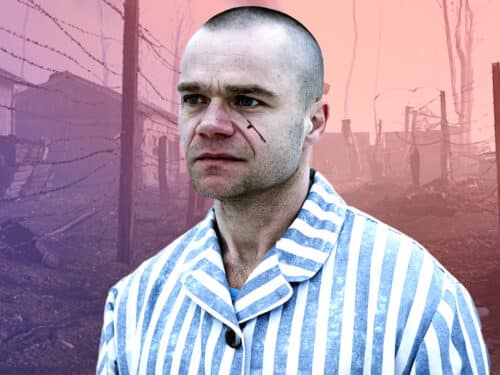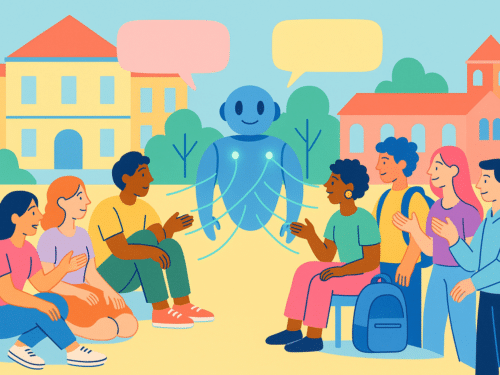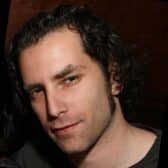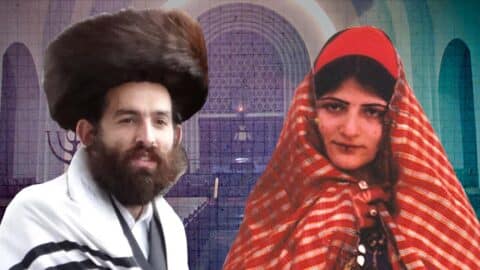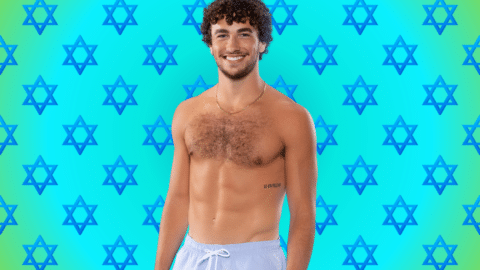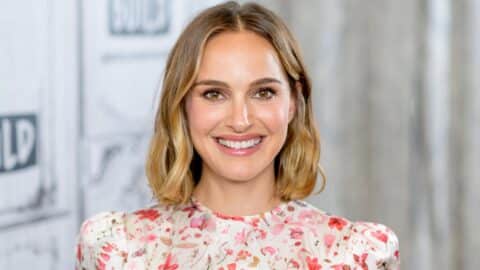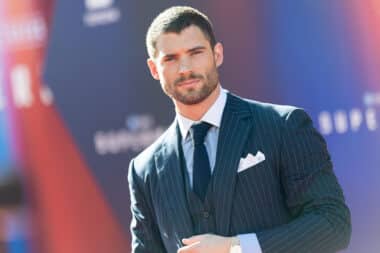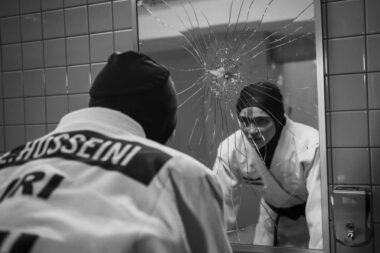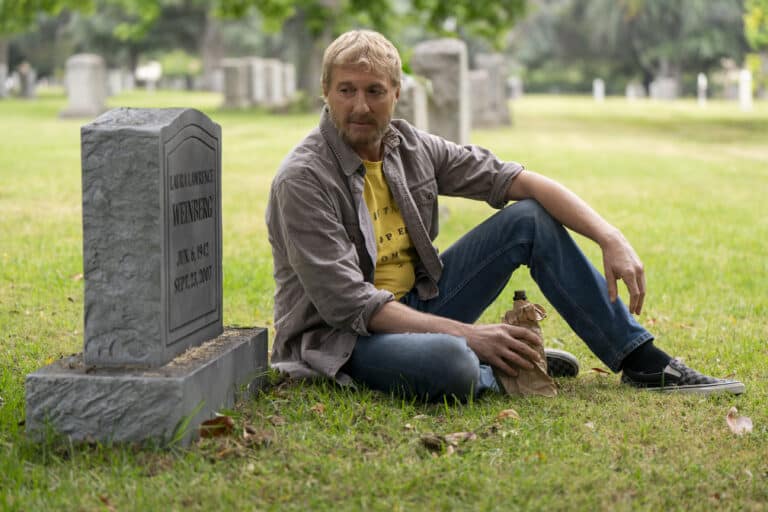
The hit Netflix series “Cobra Kai” has always been a story of redemption, particularly for Johnny Lawrence, the former high school bully who lost to Daniel LaRusso in “The Karate Kid.” Over the past six seasons, Johnny (William Zabka) has transformed from a washed-up, beer-chugging loner into a father figure, a mentor, and a man determined to set things right.
But the final episodes, which dropped February 13, take the show to new emotional depths — both for Johnny and for his former sensei, John Kreese (Martin Kove). And, in an unexpected twist, the series may have just confirmed that Johnny Lawrence, one of the most iconic 1980s villains-turned-heroes, is actually Jewish.
A hidden Jewish connection
In one of the final emotional moments in “Cobra Kai,” Johnny visits the grave of his mother, Laura Lawrence Weinberg, who passed away in 2007. The name Weinberg hints at Johnny’s possible Jewish heritage, something never previously addressed in the “Karate Kid” universe.
Until now, the only explicitly Jewish character in “Cobra Kai” was Eli “Hawk” Moskowitz (played by Jacob Bertrand), while Jewish actor Martin Kove portrayed the formidable John Kreese. But Johnny’s mother’s last name suggests that his journey — from the arrogant, privileged teen of “The Karate Kid” to the deeply flawed but good-hearted mentor in “Cobra Kai” — may also be a story of Jewish resilience and reinvention.
The revelation adds an extra layer of meaning to Johnny’s transformation. His arc mirrors a classic Jewish narrative — falling, struggling, and ultimately finding redemption, much like the stories of Jewish perseverance throughout history.
Related post: 4 Jewish mixed martial arts fighters you should know
Kreese’s redemption — is it too late to apologize?
One of the most powerful storylines in the final season revolves around John Kreese, the ruthless Cobra Kai sensei whose obsession with dominance shaped Johnny’s early years. Fans of “The Karate Kid” remember the brutal scene where Kreese strangles Johnny after his All-Valley Tournament loss, only to be taken down by Mr. Miyagi.
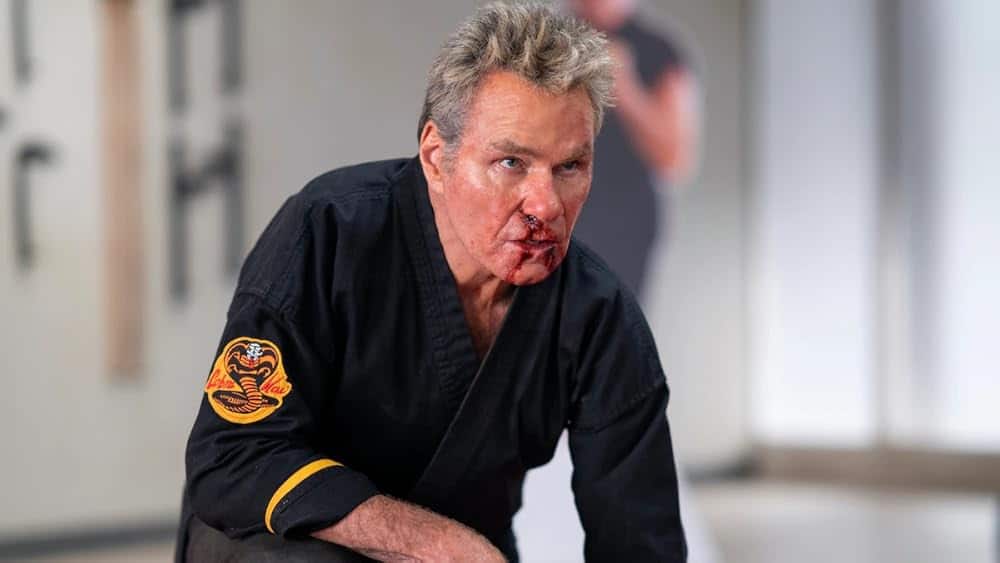
Now, decades later, “Cobra Kai” finally brings closure to their relationship. In one of his final acts, Kreese — bloodied, beaten, and near the end of his journey — admits to Johnny that he was wrong. He apologizes for his abusive mentorship, acknowledging that he should have guided him instead of breaking him down.
“It was the termination of a relationship of 40 years on screen,” Kove said in an “Inside the Dojo” segment on Netflix.
For longtime fans, this moment is monumental. Kreese has spent his life training fighters to be merciless, but in his final moments, he does what seemed impossible — he softens.
Johnny’s final fight — and his journey as a family man
The Johnny Lawrence we see in the final episodes of “Cobra Kai” is unrecognizable from the reckless, beer-guzzling dropout we met in Season 1. His mentorship of Miguel Diaz (Xolo Maridueña) and his son Robby Keene (Tanner Buchanan) has changed him, and he’s finally found love with Carmen (Vanessa Rubio), whom he proposes to.
But his greatest challenge isn’t just fatherhood or love — it’s proving to himself that he is no longer the man he used to be. In his final battle, Johnny must confront the powerful sensei of the Iron Dragons, a brutal dojo that represents everything Cobra Kai once stood for. The fight is not just about skill; it’s about proving that the lessons he’s learned — loyalty, honor, and humility — can triumph over brute force.
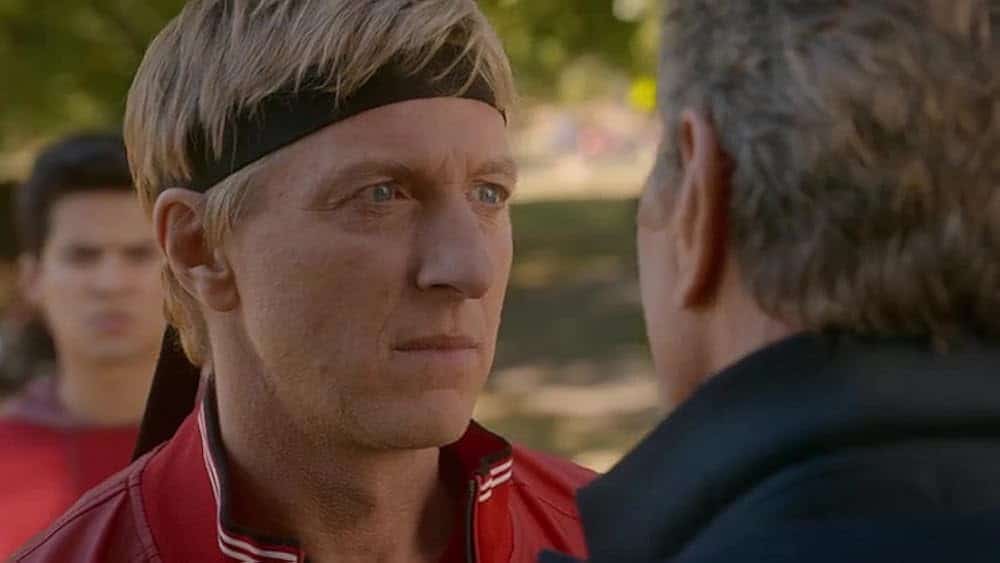
Can Kreese Find Redemption?
While Johnny has spent the series redeeming himself, Kreese’s redemption remains uncertain. The true villain of the series, Terry Silver, has been manipulating and terrorizing both Daniel and Johnny for years. But the consequences of Silver’s actions catch up to him in the most tragic way — one of the students, Kwan, accidentally dies after falling on a knife that never should have been there.
This moment shakes the entire Cobra Kai universe, forcing characters to reconsider the price of their obsession with winning. Can Kreese, the man who trained so many in his brutal philosophy, ever truly make amends? Or is his apology to Johnny the only redemption he will ever get?
Why “Cobra Kai” is a hit with Gen Z
While “Cobra Kai” delivers epic martial arts action, its heart lies in its characters and relationships. The show expertly weaves together romantic storylines, high school rivalries, and the struggles of young adulthood.
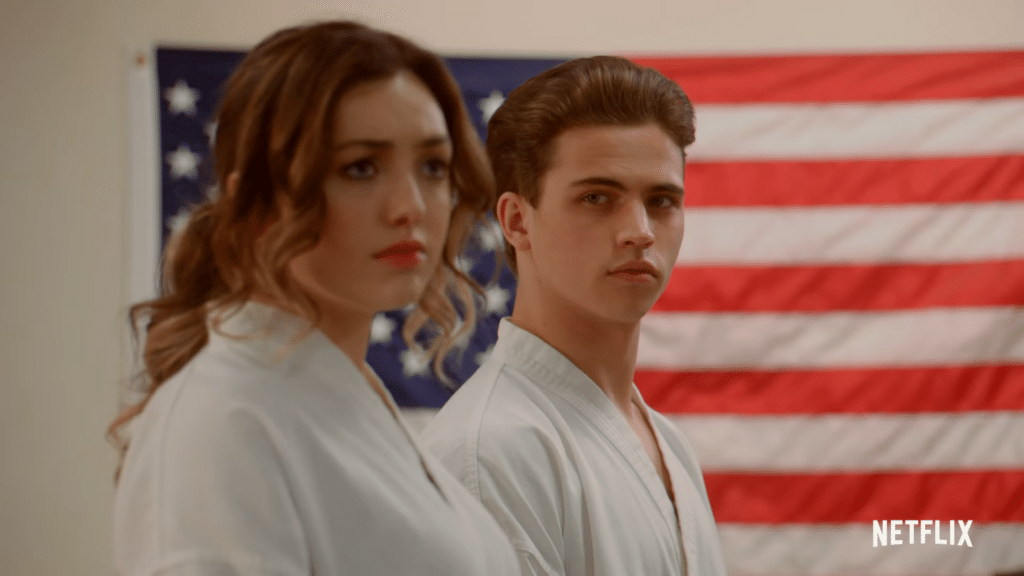
Miguel and Sam (Mary Mouser) have been a fan-favorite couple, and as they prepare to leave for college, audiences wonder if their love will last. Meanwhile, Robby and Tory’s (Peyton List) relationship reaches a defining moment when Robby confesses his true feelings — right in the middle of a brutal fight between Tory and a social media influencer who has been taunting her about previously sleeping with Robby.
These teen dramas resonate with younger audiences, but what makes “Cobra Kai” special is how it bridges generations. Parents who grew up with “The Karate Kid” watch it alongside their children, making it a rare cross-generational hit. Its core message — that life isn’t always fair, but perseverance and integrity matter—remains as relevant today as it was in 1984.
The Jewish legacy of “The Karate Kid”
Although “Cobra Kai” doesn’t explicitly explore Jewish themes, the franchise has deep Jewish roots. The original “Karate Kid” (1984) was produced by legendary Jewish producer Jerry Weintraub and written by Robert Mark Kamen, who grew up in a kosher home where Yiddish was spoken.

The film’s themes of underdogs overcoming impossible odds — guided by wise mentors — echo Jewish storytelling traditions. “The Karate Kid” was directed by John Avildsen, who also directed “Rocky,” another David and Goliath film that champions the victory of the underestimated.
The “Karate Kid” franchise expanded with sequels in 1986, 1989, and 1994, along with a 2010 reboot starring Jackie Chan and Jaden Smith. Now, the story continues with “Karate Kid: Legends,” set to hit theaters on May 11, featuring both Chan and the original karate kid, Ralph Macchio.
Even behind the scenes, Jewish talent shaped “Cobra Kai,” with Jewish comedian Dan Ahdoot playing Anoush, Daniel’s sarcastic co-worker at LaRusso Auto, providing timely comic relief throughout the series.
Why “Cobra Kai” continues to resonate
At its core, “Cobra Kai” explores themes of redemption, loyalty, and the eternal struggle between good and evil. The David vs. Goliath motif is especially strong in the final episodes, with Axel Kovacevic (Patrick Luwis), a student abused by his sensei, being trained to be as ruthless as possible.
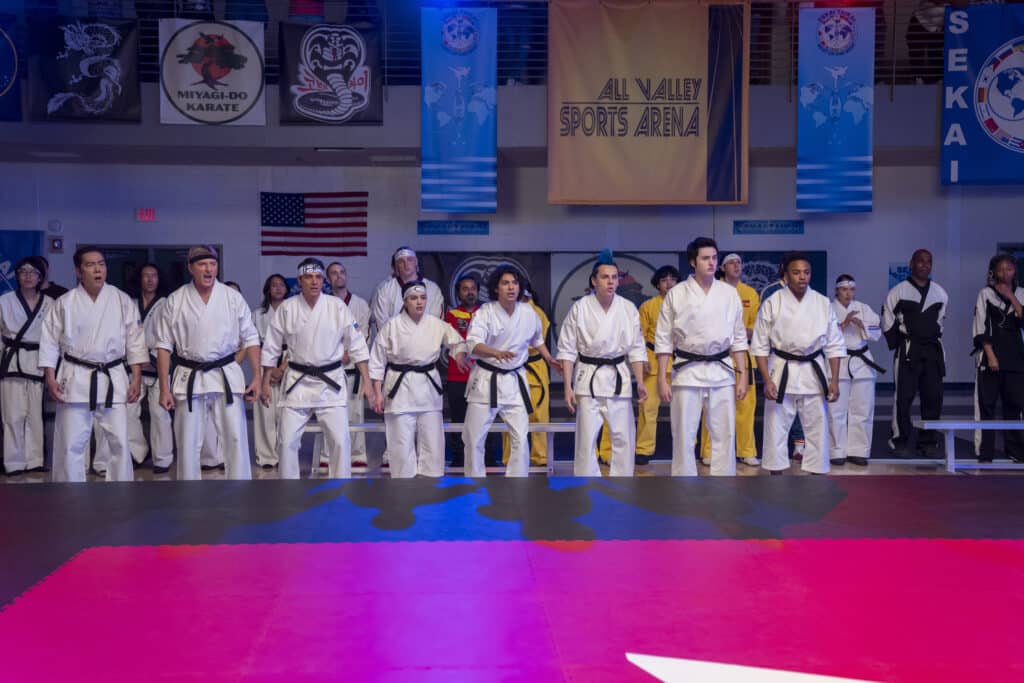
But the show also teaches resilience. Many of its characters — Tory, Robby, and Miguel — struggle with setbacks, believing their lives are unchangeable. Yet, through training, mentorship, and self-discovery, they learn that even in their darkest moments, they have the power to change their path.
The cycle of anger and redemption is also central to the series, passed down from Kreese to Johnny, then to Miguel and Robby. Just as Daniel LaRusso had to overcome his own struggles without a father figure in “The Karate Kid,” the new generation must break free from past trauma to forge their own identities.
A satisfying conclusion
“Cobra Kai” ends with a mix of high-stakes action, emotional payoffs, and a few shocking twists (does someone have Mr. Miyagi’s healing ability?). While not every storyline is tied up, the series delivers an ending that honors its roots while paving the way for the next chapter in “The Karate Kid” legacy.
For fans who have followed Johnny’s journey since 1984, “Cobra Kai” is more than just a show — it’s a story of perseverance, second chances, and the power of choosing a different path. And if Johnny Lawrence truly is Jewish, then his story is even more fitting — one of struggle, survival, and, ultimately, redemption.
